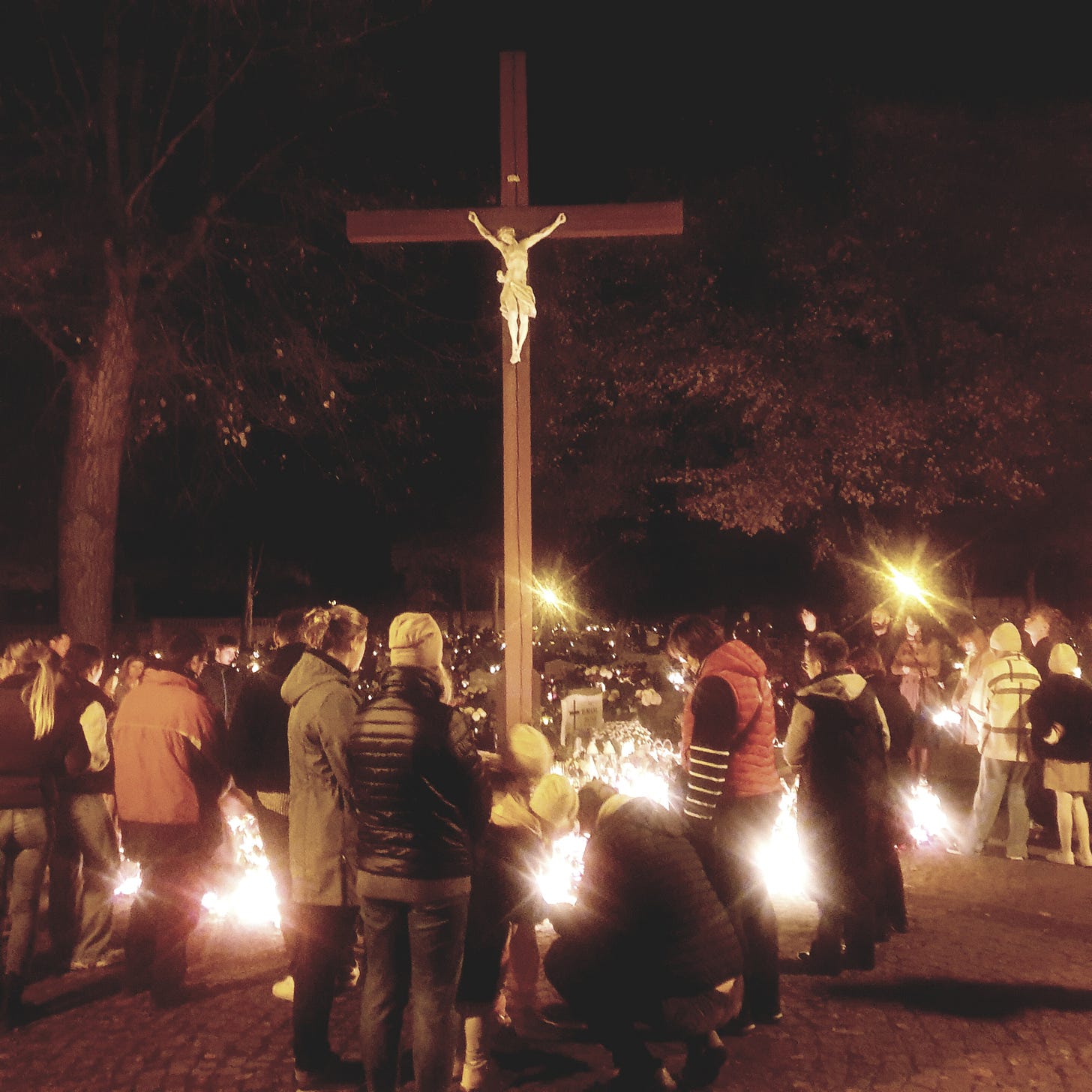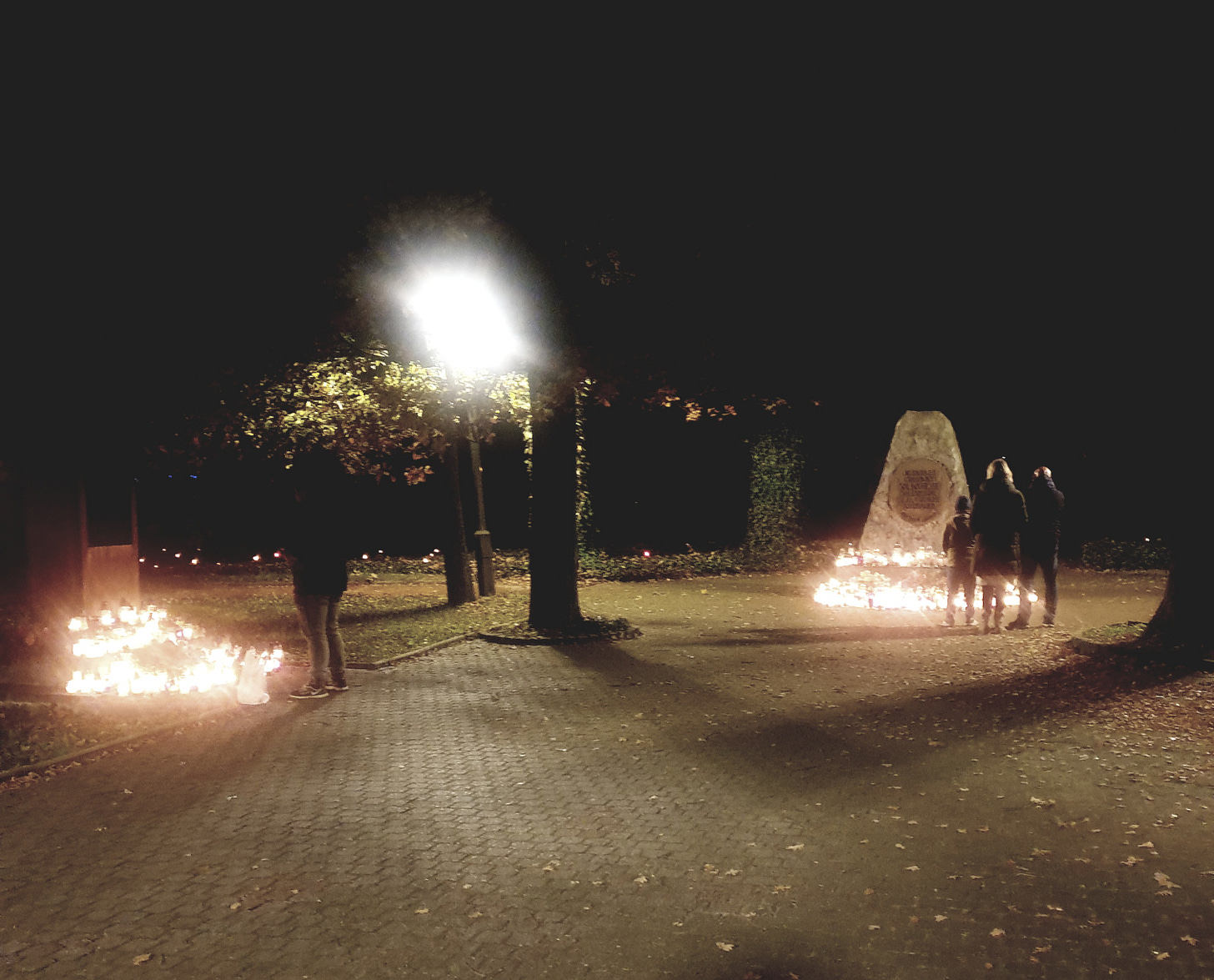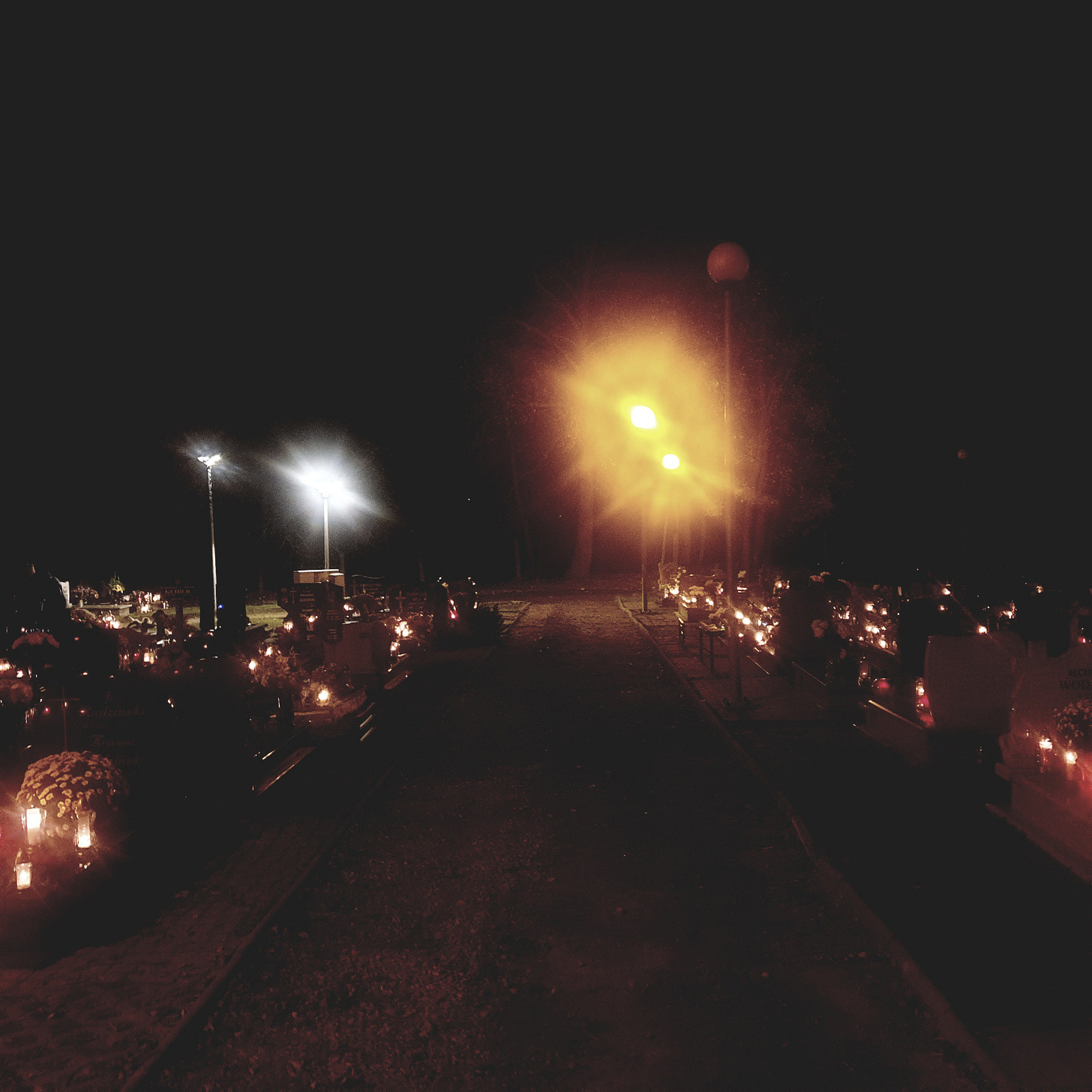On Knowing That You Will Be Forgotten
I woke up on All Saint’s Day with a hangover. (Who put Halloween the night before a serious occasion? It doesn’t make sense.)
For me, physical pollution tends to come with spiritual pollution. Hungover, I’m self-pitying, morbid and bitter. Perhaps there is a biological link between these physical and mental states. Perhaps physical illness just provides an excuse for spiritual indolence.
So, I lay in bed throughout the morning and afternoon, pondering the blackness of existence — and my existence in particular — before dragging myself off to walk around the graveyards.
For anyone who doesn’t know, in Poland — as in other nations like Italy and the Philippines — All Saint’s Day is marked by visiting the graves of dead relatives to light candles, leave flowers and remember them.
Graveyards are illuminated by warm yet solemn light.
People stand with their heads bowed in contemplation — or, perhaps, because they want to look contemplative. A social pressure to participate exposes an occasion to the charge of unseriousness. But ritual can be the structure in which seriousness is maintained. Every instinct needs some sort of framework of tradition to contain it (which, just as a car contains a driver, by no means implies that it must be static).
It is, to repurpose Larkin’s sentiments in “Church Going”, beautiful not just in the aesthetic sense but in its seriousness — an event through which it is “proper to grow wise … If only that so many dead lie round.”
There were no graves for me to visit, but I thought about lost relatives — my grandma, and my grandad, and my mum. I did my best to leave a mental light beside their memory.
I don’t think about them enough. Life moves on — until it doesn’t — and the present and the future make enough demands of us that it can be difficult to make time for the past.
Yet why do we think about the dead at all — or, to the extent that it does not come naturally, why should we? It is pleasant to reflect on happy memories, of course, but there must be some reason beyond self-interest.
It can be a source of gratitude. In remembering them, we appreciate the gift of their influence. This does not apply to all dead people. Sometimes the gift was more of a curse. (Though even here, it might be worth remembering them in order to understand that influence.) But I’m optimistic enough to think that the former cases — imperfect though all people are — remain more numerous.
It can be a source of perspective. Remembering the dead, we remember that we will die as well — not in the morbid sense, one hopes, but in the sense of appreciating that our days are finite and should be maximised.
Another more self-interested motive is that we want to be remembered too — not all of us, perhaps, but a lot of us. We don’t want to think that the memories of our names and our accomplishments, such as they are, will be erased from the Earth like scribbles from an Etch A Sketch. It makes our lives seem a lot less meaningful.
Doubtless, this is unusually true for writers. It’s not our main motivation, sure, but it is a motivation. We like to think that our work will help our names to live on, at least to some extent, after our deaths.
Of course, this is largely delusional. Whatever the size of your family, your name will be at most a source of mild curiosity within a hundred years. Few writers, meanwhile, are read at all after their deaths. Bernard Levin, for example — apologies for picking on you, Mr Levin — was Britain’s foremost columnist less than forty years ago. Now, I suspect that those of us who are aged under forty and have read Bernard Levin could organise a modest pub crawl.
In or around Polish graveyards are war memorials. Here, Polish flags join the candles and the flowers. On November 11th is Independence Day, marking the moment when Poland was resurrected, in a formal sense, after more than a hundred years of imperial suppression.
On the 10th it will be Remembrance Sunday in Britain. Despite being subjected to militantly humourless attempts to police the borders of acceptable discourse around remembrance, I think it is important to pay respects to the people who sacrificed their lives in the cause of our nations’ safety and independence. Again, if nothing else it is a source of perspective.
Yet it can also be an opportunity for mere virtue signalling. Should there not be some small extent to which it is a source of inspiration? I think so. Remembering the virtuous without some sort of aspiration towards greater virtue seems like a hollow exercise, even if we are fully appreciative that our own struggles and accomplishments will be — or should be — a lot more modest.
Remembrance need not be a passive exercise, entirely focused on the past. We can look backwards at least partly to look forwards again — with a new direction, perhaps, or just with fresh determination.
This points to a different kind of way to think about our deaths. If influence matters, as well as being remembered, then part of us could live on without even being acknowledged. To help, or to heal, or to inspire someone is to blend your legacies — in a small sense, perhaps, but in some kind of sense. To consider this meaningless if it is not explicitly appreciated would be profoundly self-involved (which is not to claim I don’t have the potential for such profound self-involvement).
I think my mum, for example, would have liked to be remembered. She would have been proud that people were buying her book (Celebration Poems, which we published after her death). Someone who claims not to have an ego is revealing the swollen nature of their ego in their delusional pretensions to humility.
But Mum would have been prouder about the people who have sent messages saying that her poems affected them. More than being remembered, she would want to have inspired people — to have played a role in someone being a truthful writer, or a loving relative, or a loyal friend, or a kindly neighbour.
Of course, I spend too much time being selfish, or spiteful, or hungover to do a great job of that either. But it’s true nonetheless.





The Lord is my portion, says my soul. He remembers me.
“I cry to you, O Lord; I say, “You are my refuge, my portion in the land of the living.”
Psalm 142:5
“The Lord is my chosen portion and my cup; you hold my lot. The lines have fallen for me in pleasant places; indeed, I have a beautiful inheritance.”
Psalm 16:5-6
“Whom have I in heaven but you? And there is nothing on earth that I desire besides you. My flesh and my heart may fail, but God is the strength of my heart and my portion forever.”
Psalm 73:25-26
“Arise, O Lord! Confront him, subdue him! Deliver my soul from the wicked by your sword, from men by your hand, O Lord, from men of the world whose portion is in this life. You fill their womb with treasure; they are satisfied with children, and they leave their abundance to their infants. As for me, I shall behold your face in righteousness; when I awake, I shall be satisfied with your likeness.”
Psalm 17:13-15
“But as for me, may I never boast, except in the cross of our Lord Jesus Christ, through which the world has been crucified to me, and I to the world.”
Galatians 6:14
Wonderful piece. I’m a fan of your work